50 Questions You Should Always Ask Your Doctor After 50
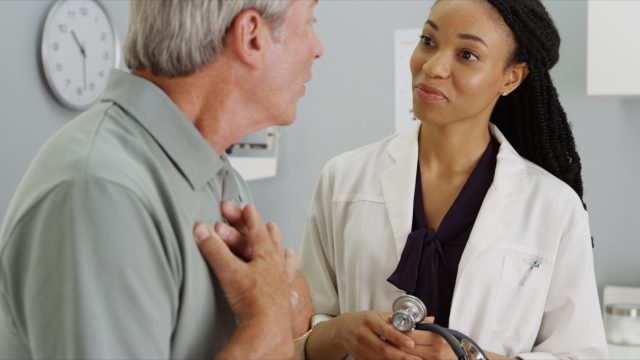
Reaching the big 5-0 can be daunting. It’s when your friends flood you with “over the hill” gag gifts like a magnifying glass for your nightstand or an inflatable walker. But the joke’s on them: When you prioritize your health in your 50s, you’ll be feeling youthful for years to come.
But if you want to take your health into your own hands, you’ll have to speak up at your next doctor’s appointment. By asking some of these important questions, age will truly remain just a number.
1
How often do I need to go to the doctor?
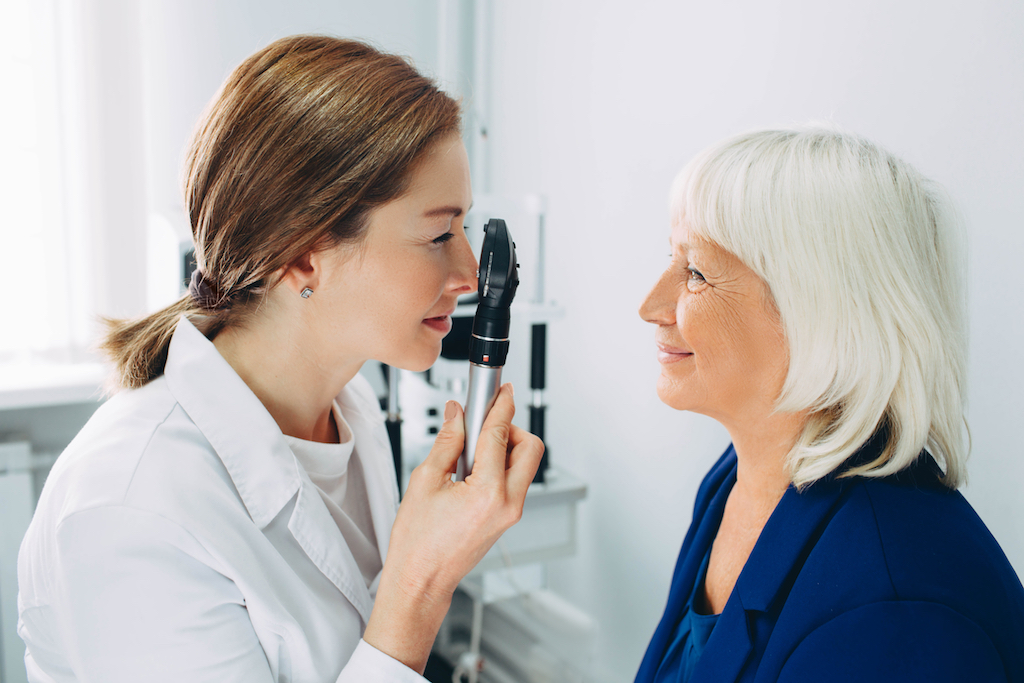
You could get away with physicals every other year throughout your 40s, but starting at age 50, Duke Health recommends scheduling annual appointments for general care. You’ll also have important screenings at these appointments, based on your gender, health, and family history. At your next doctor’s visit, you can get a better idea of a schedule that works for you.
2
Is my digestion normal?
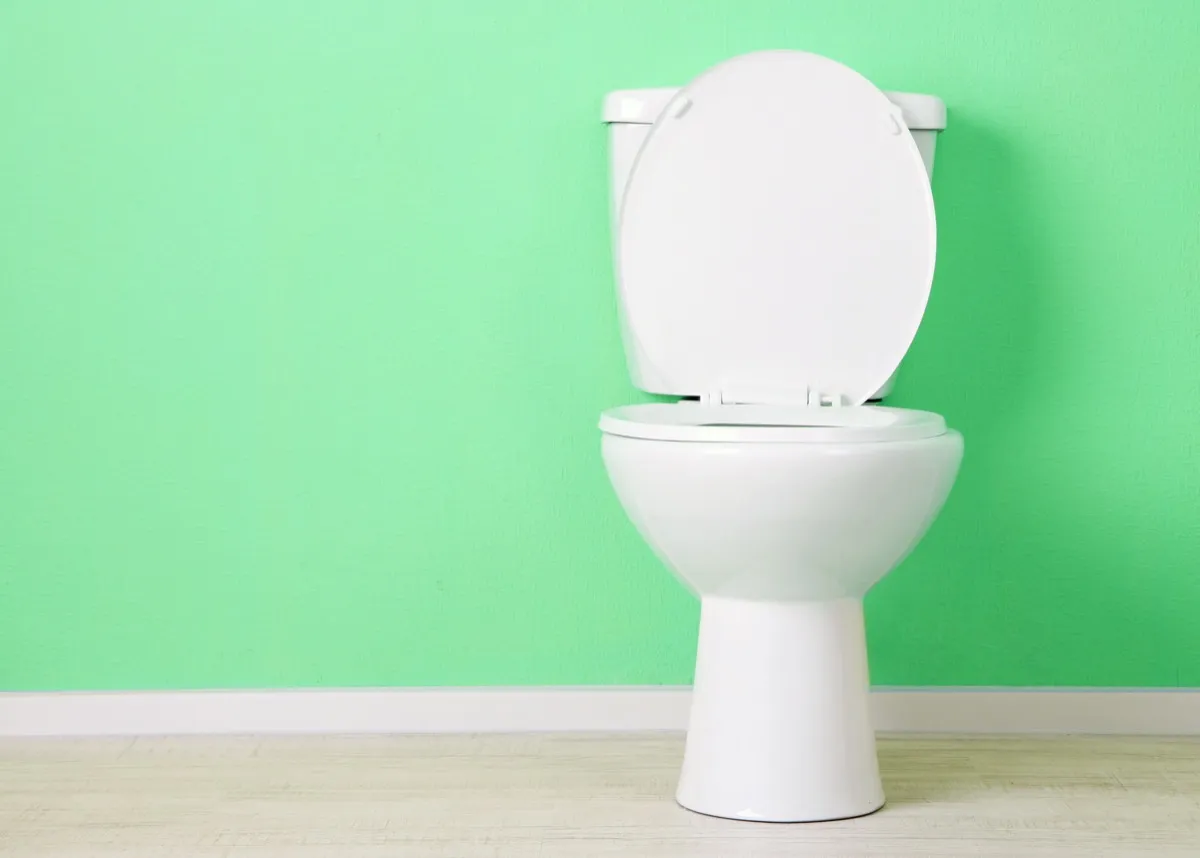
If things aren’t going as smoothly in the bathroom as they used to, it’s not you—it’s your age. According to Inna Lukyanovsky, PharmD, now’s the time when your motility and enzymatic production starts to slow down. When that happens, the nerves and muscles in your digestive tract don’t function as well as they used to, causing issues like constipation and diarrhea. Luckily, you can fight off those problems with the help of your doctor.
3
Can I get lab work done?
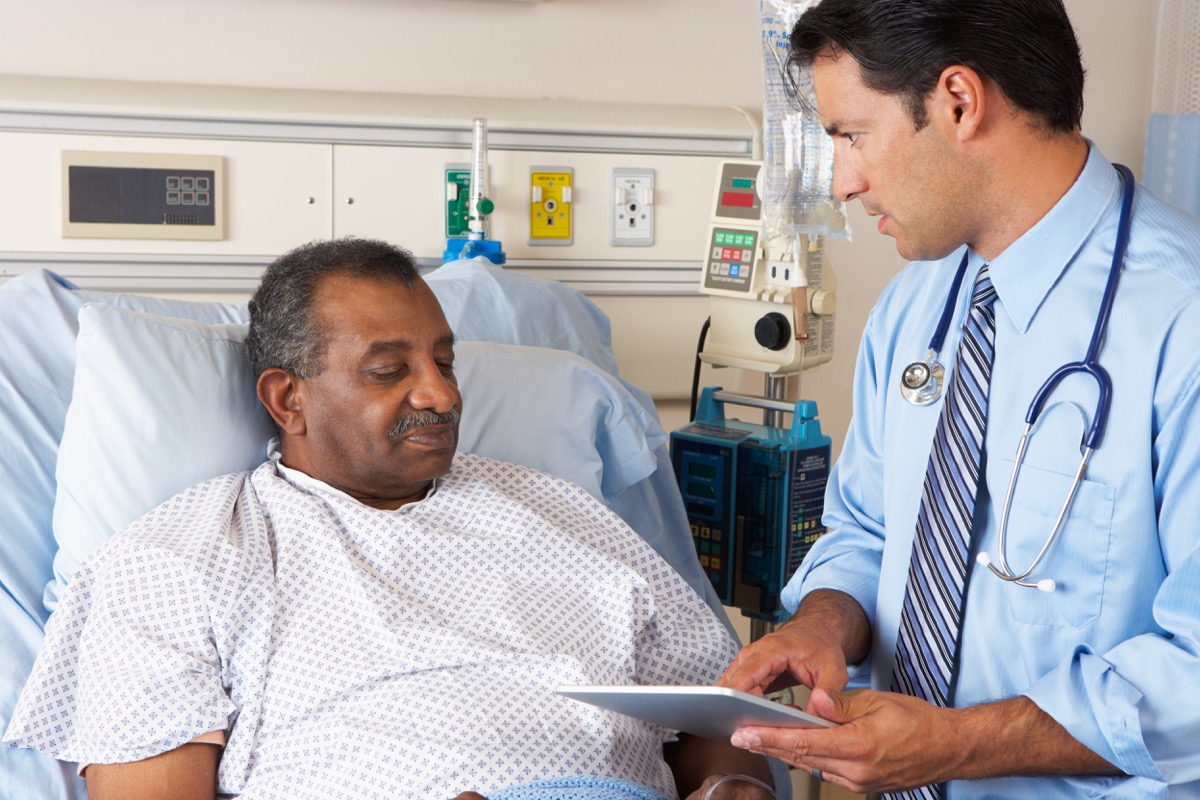
No one likes being pricked and prodded, but according to Maggie Berghoff, a family nurse practitioner, getting labs done regularly—at least once a year—could be key in fine-tuning any imbalances that come about in your 50s. Plus, bloodwork can catch things like diabetes, thyroid abnormalities, cardiovascular events, and even cancer.
“Laboratory testing is critical so you know what’s going on inside your body. It’s hard to tell from how you feel alone if there are certain levels that are ‘off’ that could be harming you,” Berghoff says. “Get regular lab work done to be sure you’re staying healthy through the years and catching any abnormalities.”
4
How’s my thyroid function?
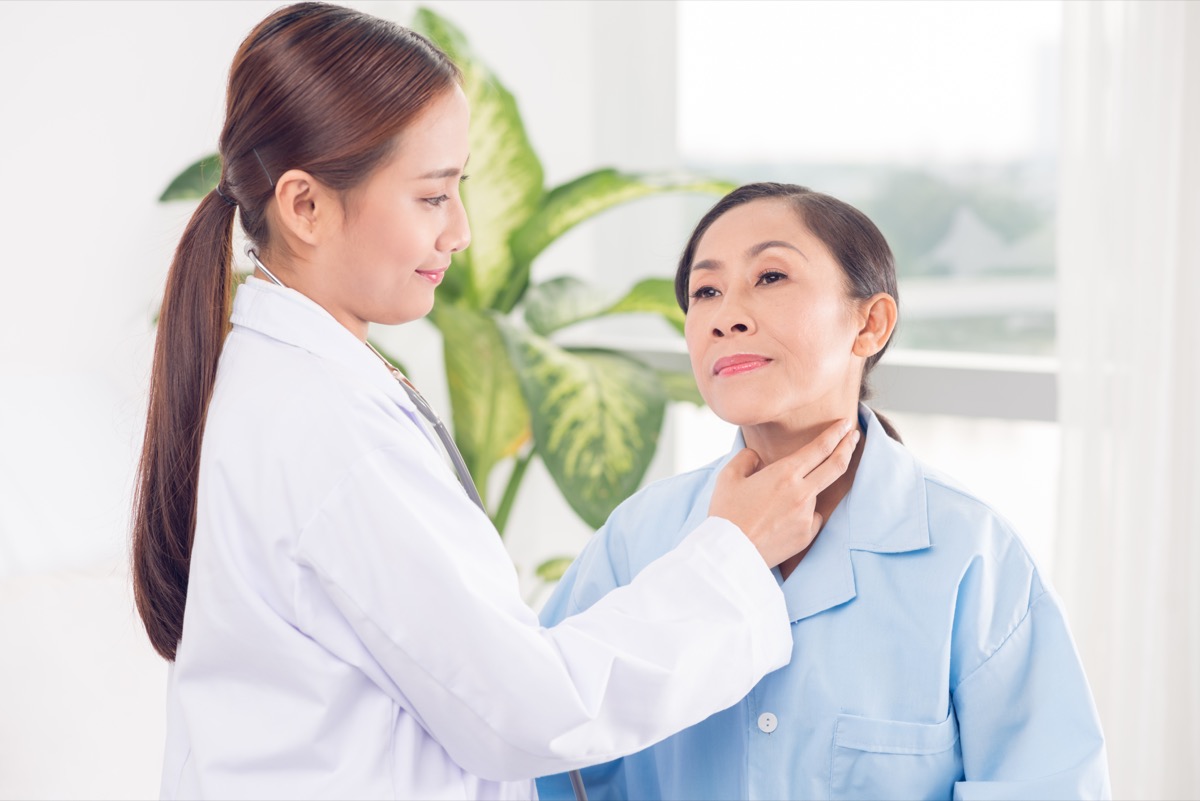
Your thyroid gland—which is located in your neck—produces hormones that help your brain, heart, kidneys, liver, and other organs work properly. Unfortunately, as you age, it’s more common to develop thyroid disorders, according to the Health in Aging Foundation. Have your doctor check into your thyroid health—especially if you’re a woman or if thyroid disorders run in your family—to make sure you stay healthy.
According to Lukyanovsky, if underactive thyroid (hypothyroidism) isn’t caught early, chronic thyroid problems can start. In addition, other common problems include overactive thyroid (hyperthyroidism), thyroid nodules, and thyroid cancer.
5
Which vaccines do I need?
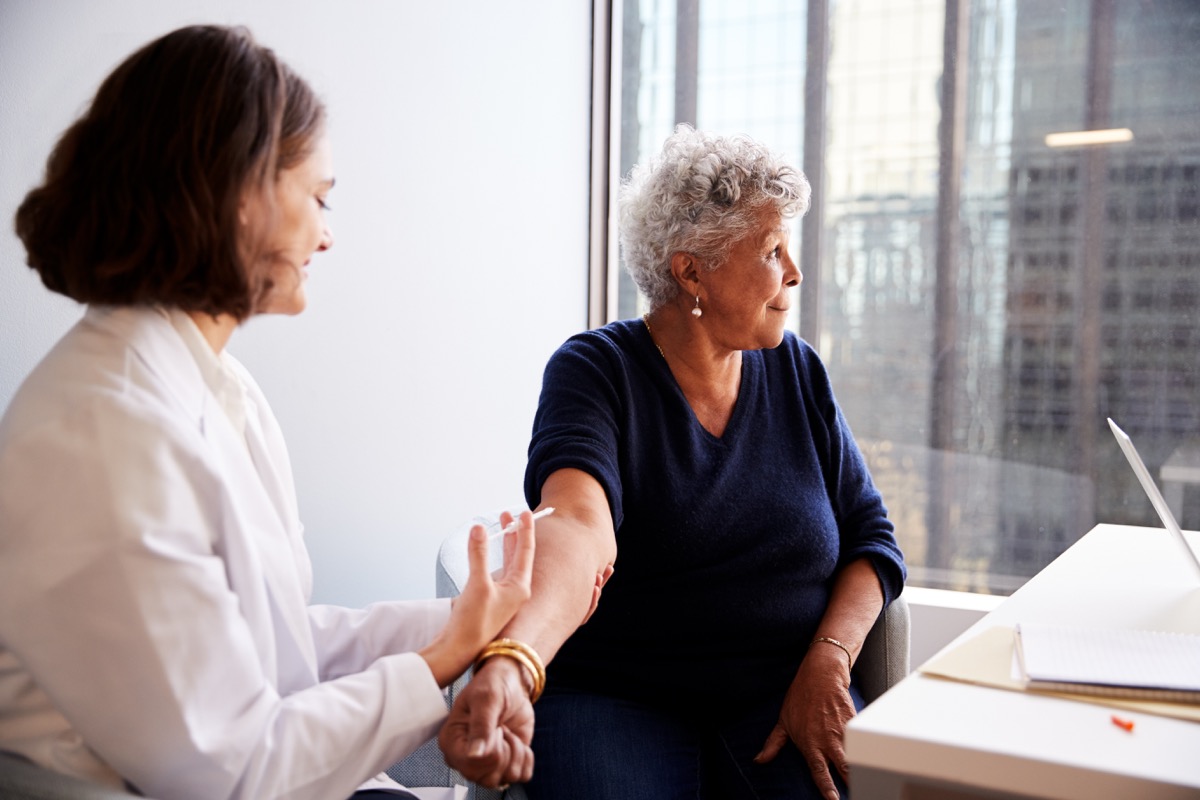
It’s always a smart idea to stay up to date on your vaccines. Make sure to check in with your doctor to see if you’re due for anything. According to the Centers for Disease Control and Prevention (CDC), it’s recommended that those 50 and older get a zoster vaccine, which prevents shingles and any complications that come about due to the disease. In addition, all adults between 27 and 60 years old should get a flu vaccine yearly, have a Tdap vaccine (which protects against whooping cough) if it wasn’t received as an adolescent, and a Td booster every 10 years, which protects against tetanus and diphtheria.
6
Do I really need all these medications?
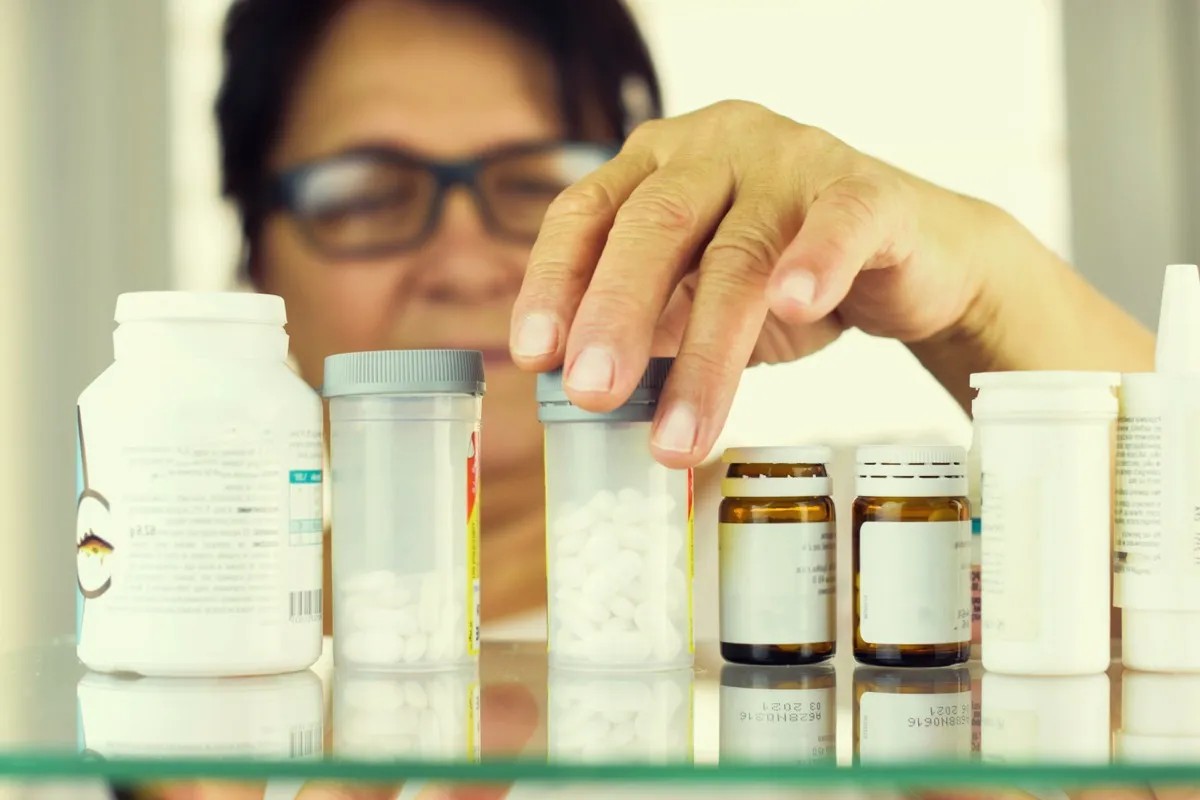
By your 50s, you might already have a hefty amount of medications you’re taking every day. During your next doctor’s appointment, go through each of them and figure out if you still need it. Sometimes after being on something for so long, the prescription becomes a habit. But after years of popping the pill, it’s a good idea to analyze whether it’s still doing its job or causing unwanted side effects you’d be better off without.
7
Are there any alternatives for my medications?

Aside from talking to your doctor about the medications you’re currently on, it’s also a good idea to ask if there are any lifestyle changes you can make that could help you get off some of them. For instance, some people are able to manage type 2 diabetes through a healthy diet, regular exercise, and weight loss as opposed to taking diabetes medication or insulin therapy, according to the Mayo Clinic.
8
Is my sleep schedule normal?
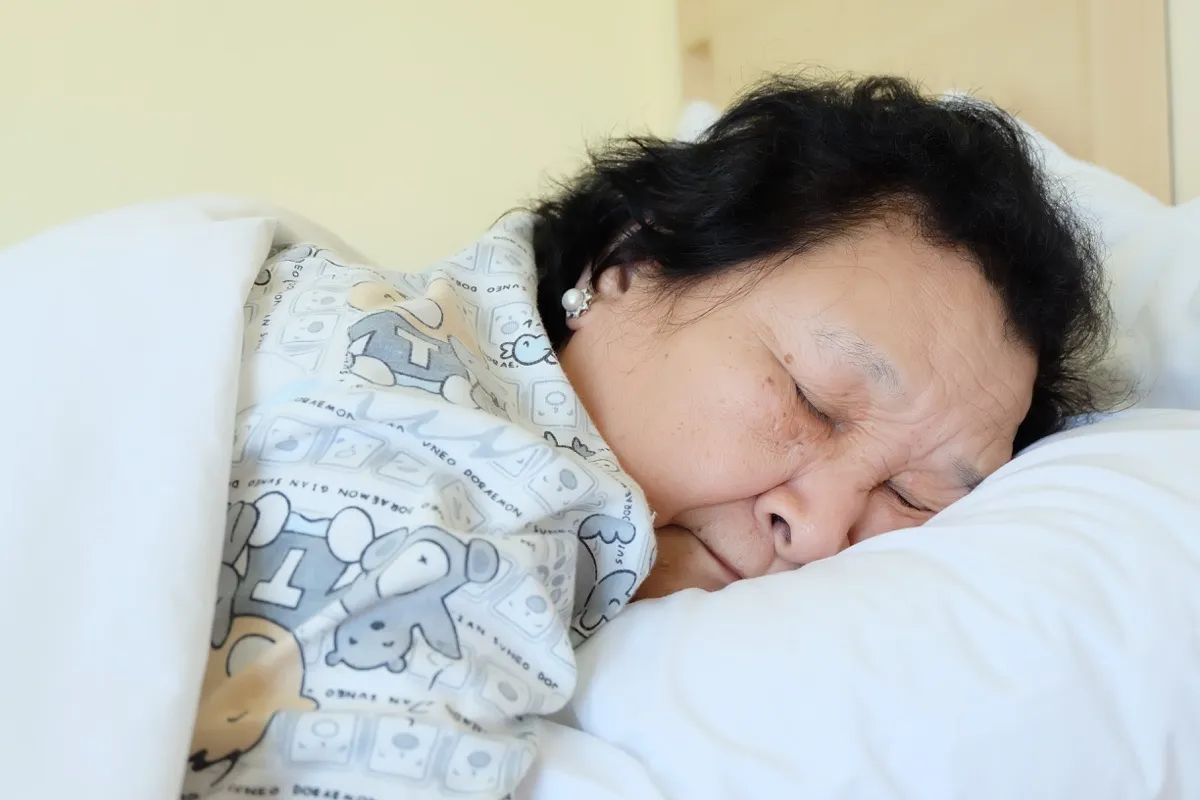
In your younger years, getting the proper amount of sleep wasn’t an issue. Once you crawled into bed, you easily conked out until your alarm went off. But unfortunately, sleeping problems become more common with age. As you get older, you’re also at a higher risk for sleep apnea, where your breathing stops and starts again while you’re asleep. No matter what sleeping problem you’re having, your doctor can help you find a solution.
9
How often should I get a mammogram?

Whether you have a family history of breast cancer or not, mammograms are important for early detection. According to the American Cancer Society, it’s recommended that women start getting yearly mammograms at age 45; then starting at 55, you can switch to getting a mammogram every other year depending on your health. To figure out the best schedule for you, speak with your doctor.
10
How often should I get a colonoscopy?
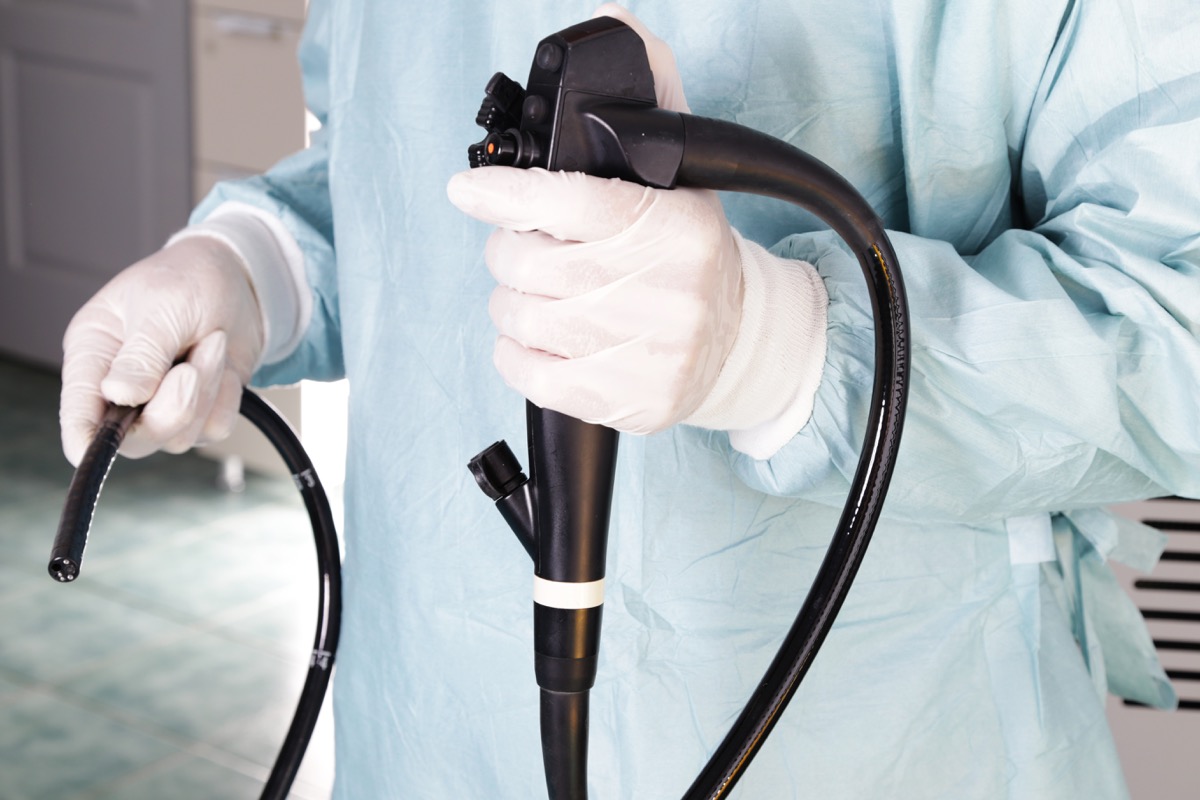
While breast cancer screenings are especially important for women, checking for colorectal cancer is a must for everyone. Because 90 percent of new cases occur in those 50 and older, the CDC recommends having regular screenings from 50 to 75 years old to check for precancerous polyps. There are different options available—including a colonoscopy and stool test—and your doctor can let you know which option is best for you, as well as how often you should be screened.
11
What can I do between appointments?
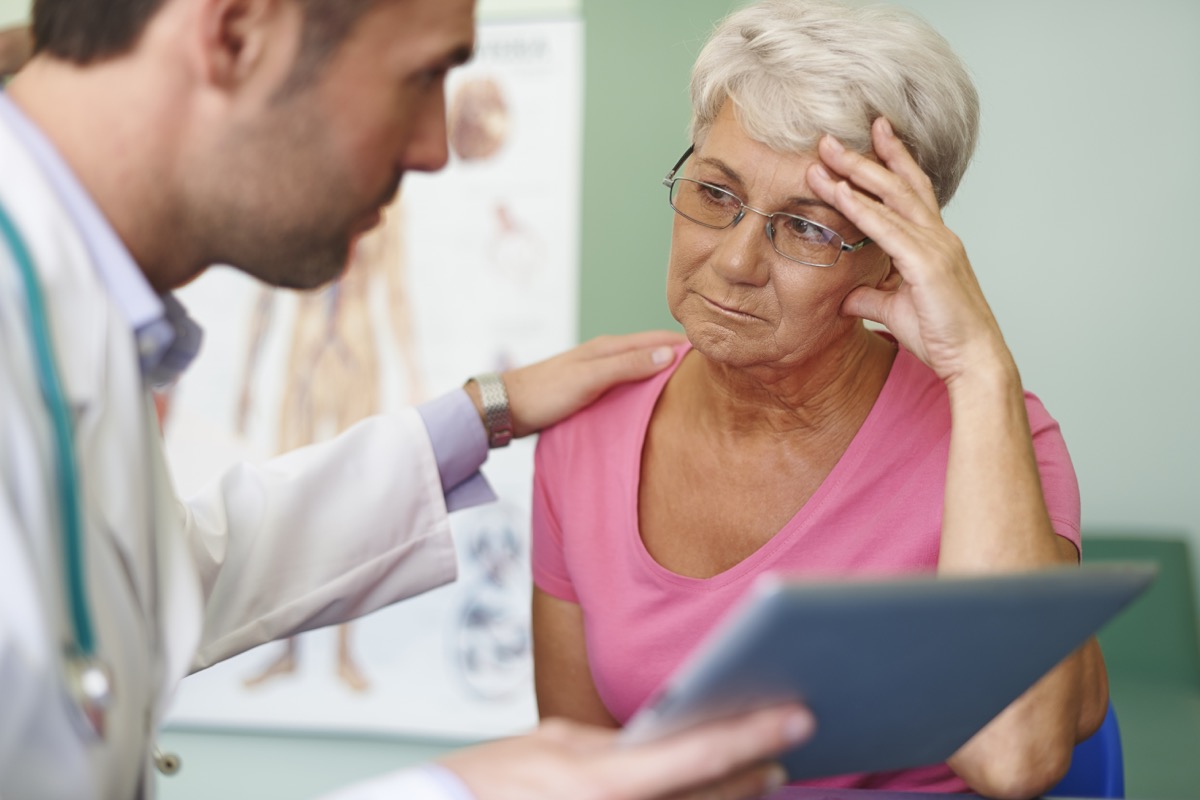
If there’s usually a considerable amount of time between your physical exams, it’s always a smart idea to ask your doctor what you can be doing between appointments to better your health. Whether you’re already generally healthy or you’re dealing with some issues, they can recommend steps you can take to improve your wellbeing before your next visit. Maybe that’s a change in diet, an increase in your workout schedule, or meditating to help relieve stress.
12
Why is my skin so dry?
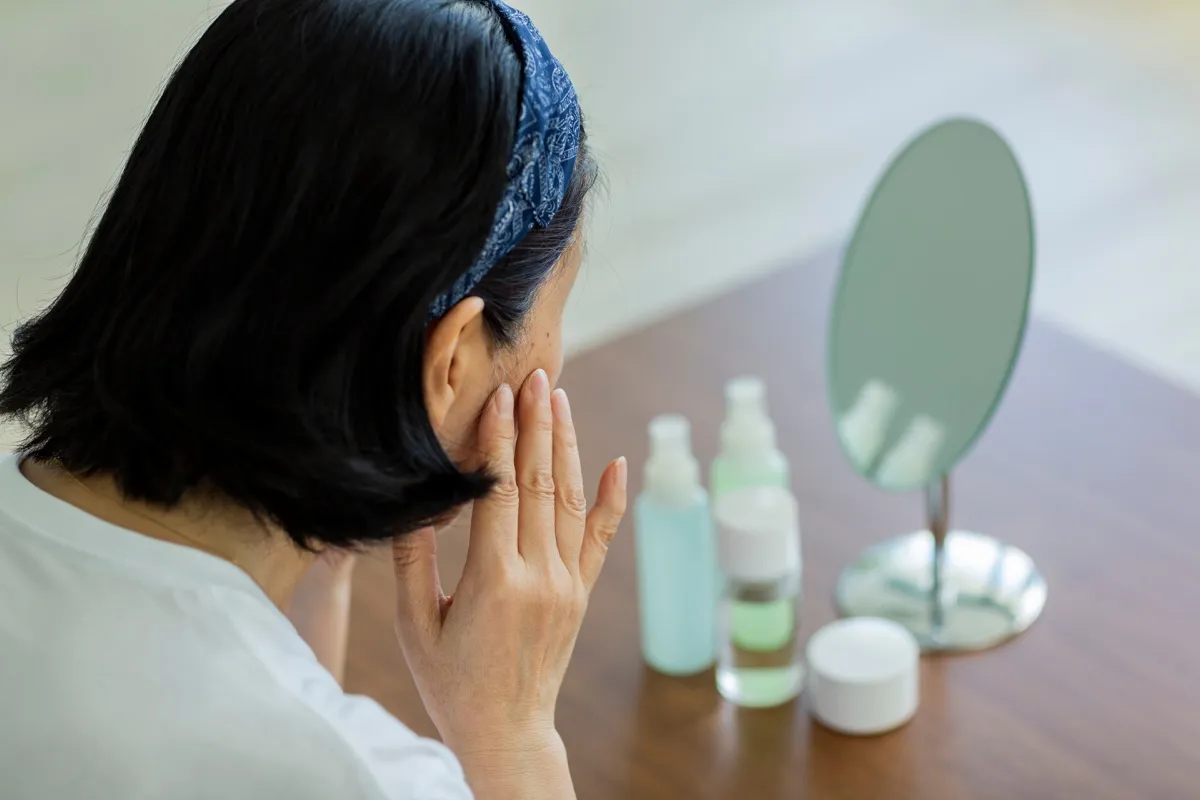
Having dry skin isn’t fun, and it only becomes more common with age. According to the National Institute on Aging, those dry spots often show up on your lower legs, elbows, and lower arms as rough, scaly patches. The good news is your doctor can help you figure out what’s behind the issue, whether it’s not drinking enough water, being stressed, loss of your sweat and oil glands, taking certain medications, or dealing with health problems, like diabetes or kidney disease.
13
Do I have a food intolerance?

If you’re feeling less than stellar, it might be due to your diet. Even some of the healthiest foods can bring on life-altering symptoms due to a hidden food intolerance you never knew you had. “Food intolerances cause immense inflammation in the body, which can disturb essentially any system,” Berghoff says. “Hidden food intolerance presents itself in a variety of ways and can cause nagging and chronic symptoms like headaches, migraines, bloating, constipation, skin rashes or acne, and aches and pains. They can also cause sleep disturbance, fatigue, and autoimmune disease.”
14
Should I get my lean mass tested?
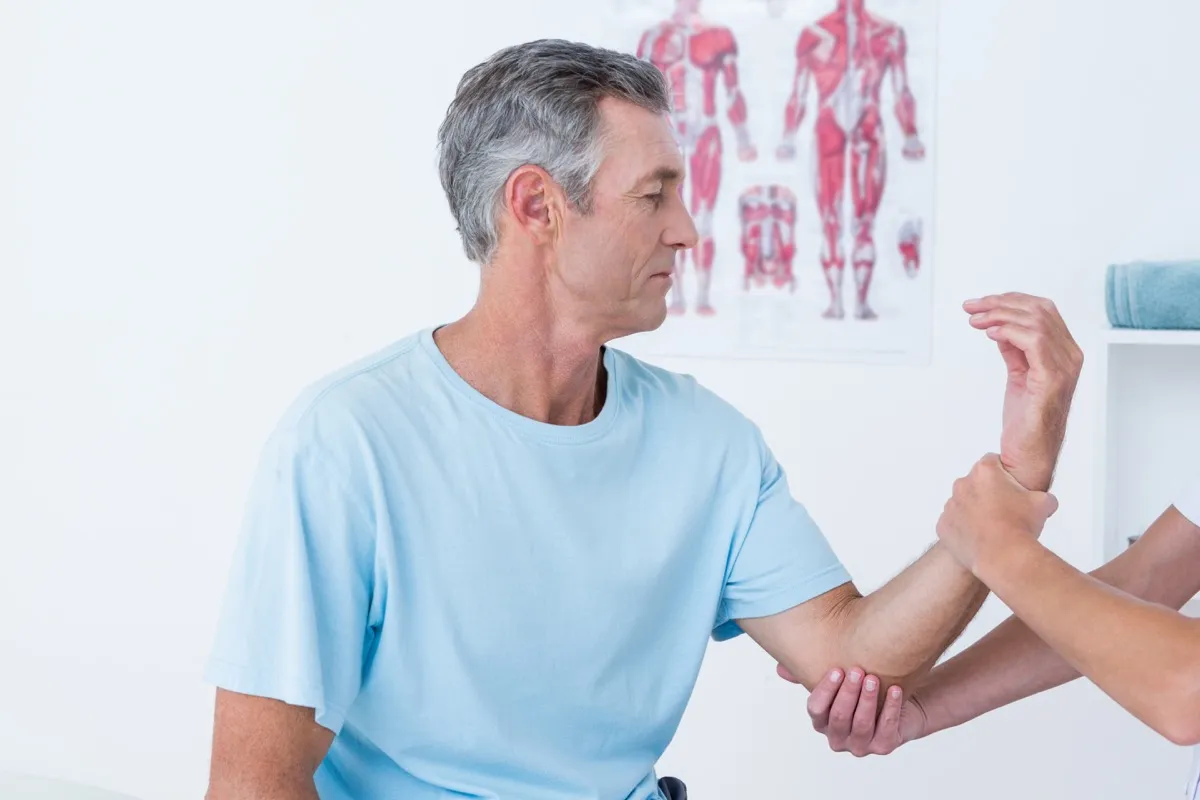
Your lean muscle mass tends to diminish as you get older, and maintaining it is incredibly important to your health and well-being. According to the Stanford Center on Longevity, lean muscle mass is crucial for both your functionality and overall health, and getting it tested—as well as making any changes you need to in order to maintain it—could help you live a longer, healthier life.
15
How’s my blood sugar?
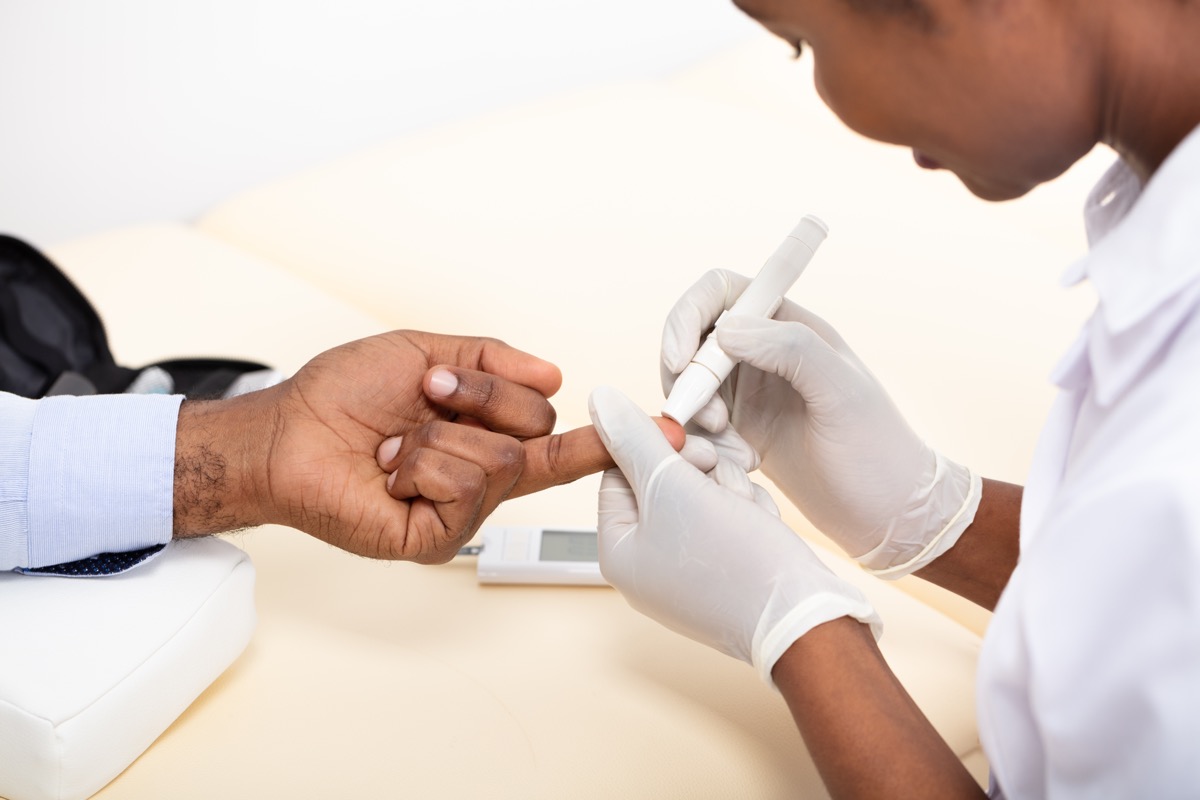
If you haven’t had regular diabetes screenings yet, don’t wait another second. It’s recommended that adults get their blood sugar levels tested every three years starting at age 45, whether they feel they need to or not, according to Harvard Medical School. While there are many symptoms of diabetes—like fatigue, extreme thirst, frequent urination, blurry vision, and weight-loss—many people have no idea they have it. Considering more than 100 million adults in the U.S. currently live with diabetes or pre-diabetes, catching any problems early could greatly benefit your health.
16
Should I see a specialist?
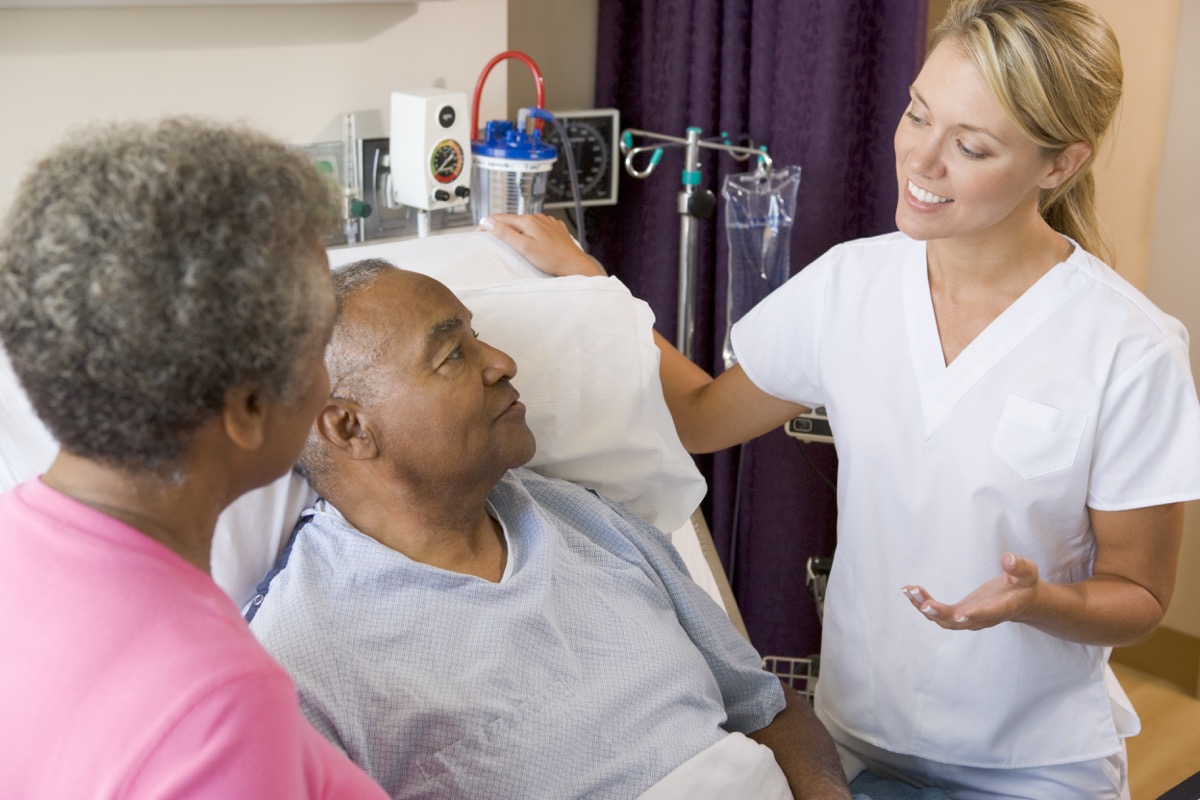
Don’t be afraid to ask your doctor to recommend you to a specialist who can dig deeper into your health. If you’ve got a niche problem that’s always bothered you, say a skin condition or constant allergies, your 50s are the time to finally get an answer. Don’t spend another second of your life suffering from something that might have a solution.
17
How’s my bone health?
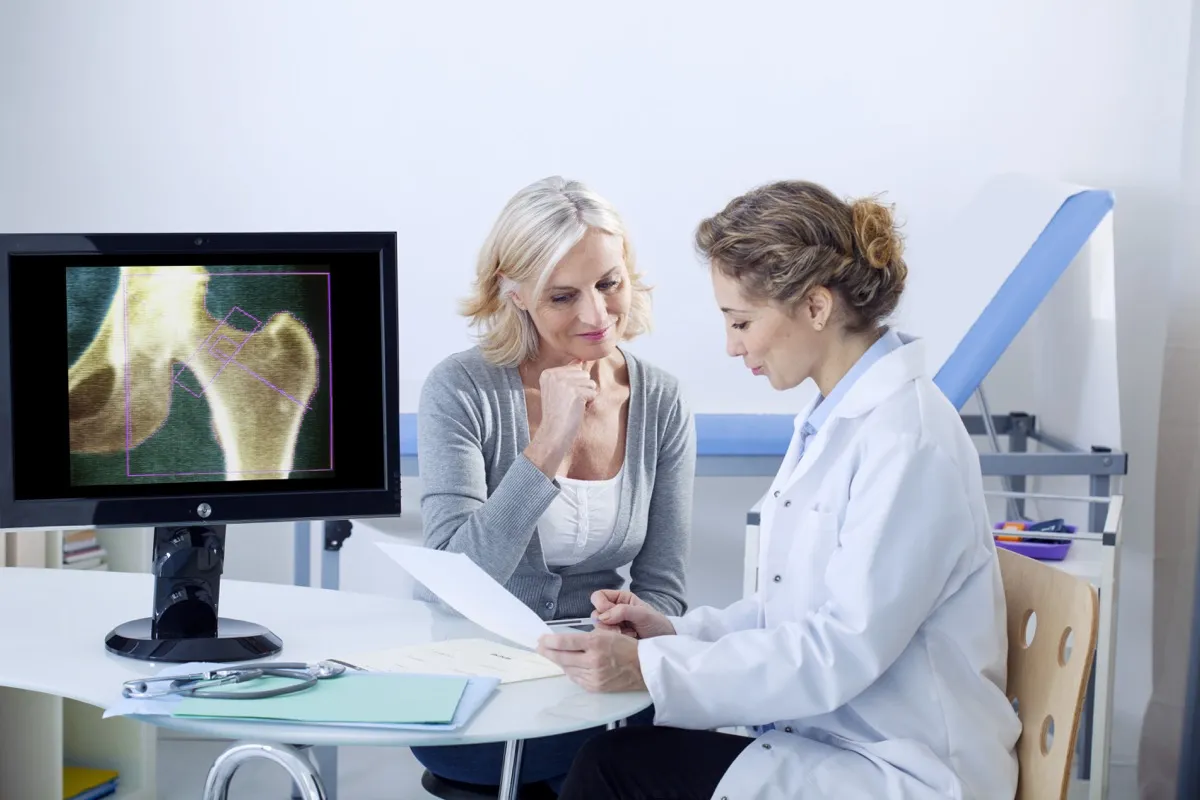
Your 50s is prime time for checking into your bone health. Not only do many women go through menopause during this time—which can cause bone breakdown due to estrogen loss—but men also begin experiencing bone loss at a gradual rate, according to 4BoneHealth. Talk to your doctor about how you can prevent bone loss from occurring. Since many factors play into your risk of osteoporosis—like your calcium intake and vitamin D levels—you can make sure you’re on the right track to preventing breaks and fractures in your older years.
18
How are my vitamin D levels?

Speaking of vitamin D, making sure your levels are normal doesn’t just keep your bones healthy. Low levels of vitamin D have been linked to cardiovascular disease, cognitive impairment, and cancer. And vitamin D is also important for muscle function and your immune system. “It’s very important to maintain the optimal levels between 50 to 80 years old since so many health conditions are associated with vitamin D deficiency,” Lukyanovsky says.
19
Why am I feeling depressed?

Depression can come about at any time, but according to Johns Hopkins Medicine, you’re more likely to develop it if you’re between 45 and 64 years old. There are many things that factor into the intense feelings of sadness, from stressful life events to a family history of mental health issues. Make sure you bring it up to your doctor to figure out the best treatment plan.
20
Why am I waking up during the night?
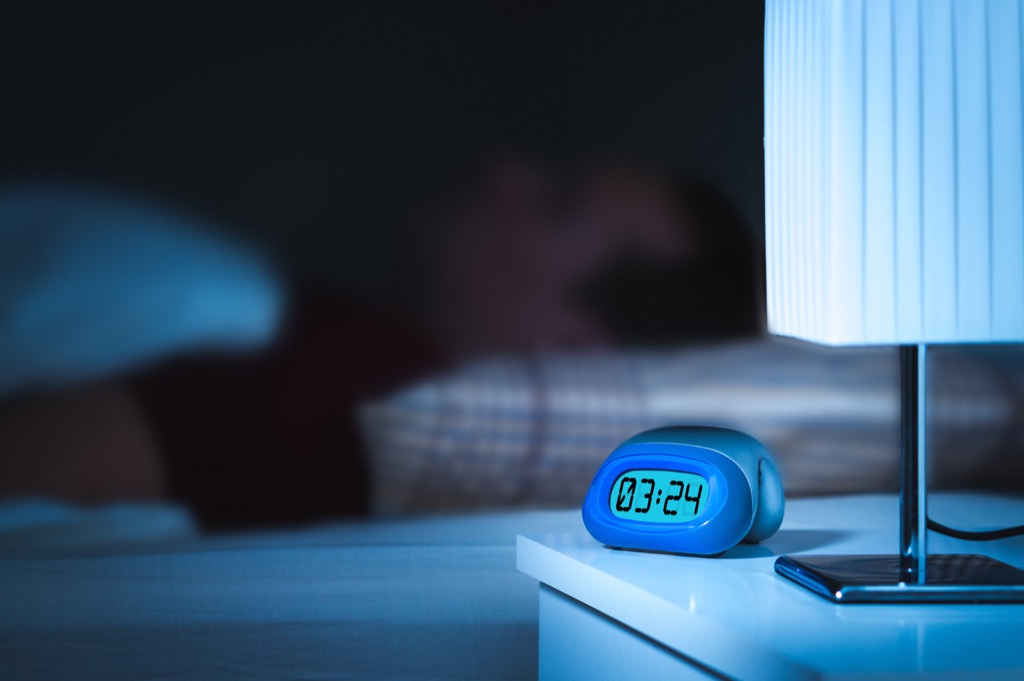
If you’ve had issues staying asleep during the night once you hit your 50s, it’s not uncommon. According to the National Sleep Foundation, this issue becomes more frequent with age due to changes in your sleeping patterns and an increase in issues like snoring, restless leg syndrome, and gastroesophageal reflux disease (GERD). Your doctor can help you get to the root of the problem so you’re able to sleep like a baby once again.
21
How much physical activity should I be getting?

Your body can handle basically any type of physical activity you throw at it in your youth. In your 50s, however, it might be a good idea to ask your doctor how much physical activity is best for your body. “It’s important to find time to see a cardiologist in your 50s if you’ve never seen one yet—not only to get a baseline electrocardiogram (or ECG, which measures the electrical activity of your heartbeat), but also speak with your doctor about how much physical activity you can handle,” Lukyanovsky says.
22
What can I do about my age spots?

Have you noticed flat, brown spots appearing on your face, hands, arms, back, or feet? You can blame all that time spent in the sun during your younger years, which just so happens to start showing up as you age. While you can prevent additional age spots by being religious about wearing sunscreen, you can also talk to your doctor about having them removed.
According to the Mayo Clinic, treatments include prescription medications that help them fade, laser and intense pulsed light therapy, cryotherapy, dermabrasion and microdermabrasion, and chemicals peels, which all help them fade over time.
23
Why am I so sleepy during the day?
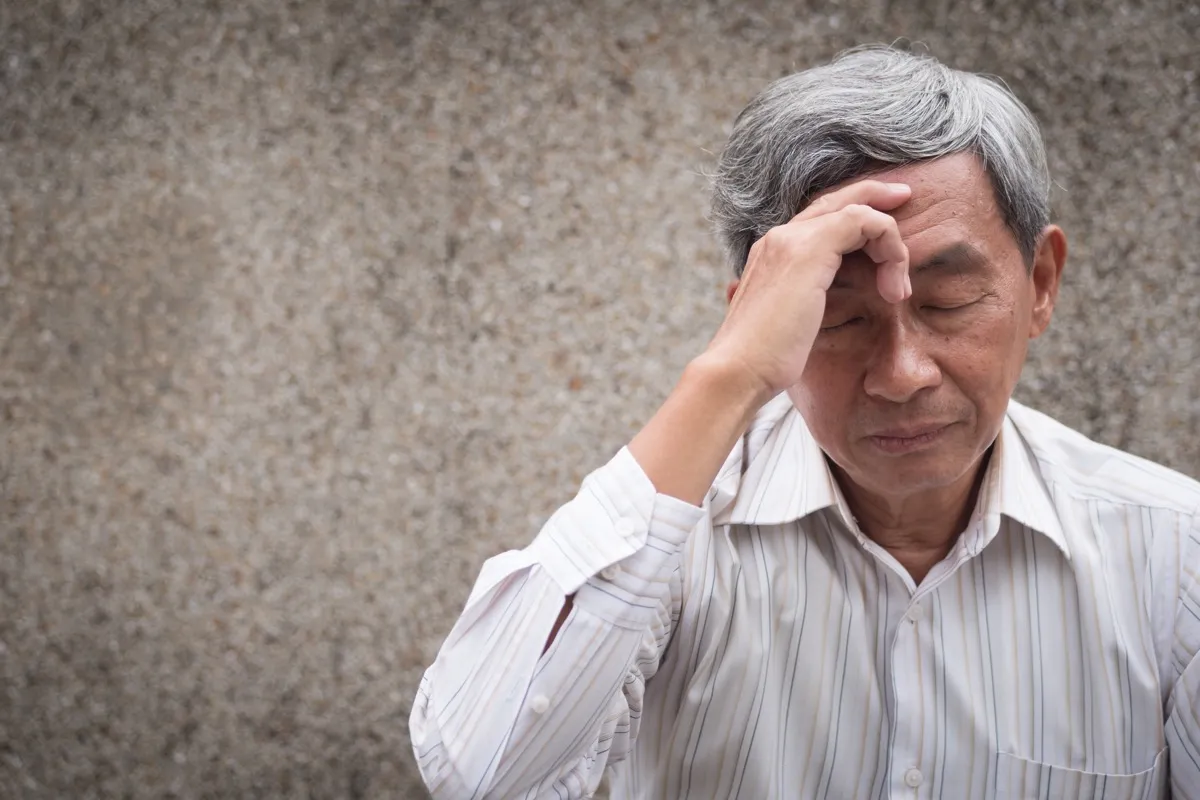
If you’re always tired during the day and often take naps, bring the issue up to your doctor. It’s common as you age, especially if your sleep schedule isn’t as solid as it used to be. But in addition to that, a whole host of medical problems could be responsible for your sleepiness as well. Your doctor can help you figure out how to ward off that tiredness until it’s actually time for bed.
24
What’s up with all my skin tags?

If you’re noticing skin tags—which look like small, flesh-colored growths—popping up more often, don’t get too worried. According to the National Institute on Aging, they’re common with age, particularly in women. Even though they’re harmless, they’re definitely a nuisance—especially since they pop up on the eyelids, neck, and other body folds. If you want to get rid of them, discuss having them removed with your doctor.
25
Why am I gaining weight?
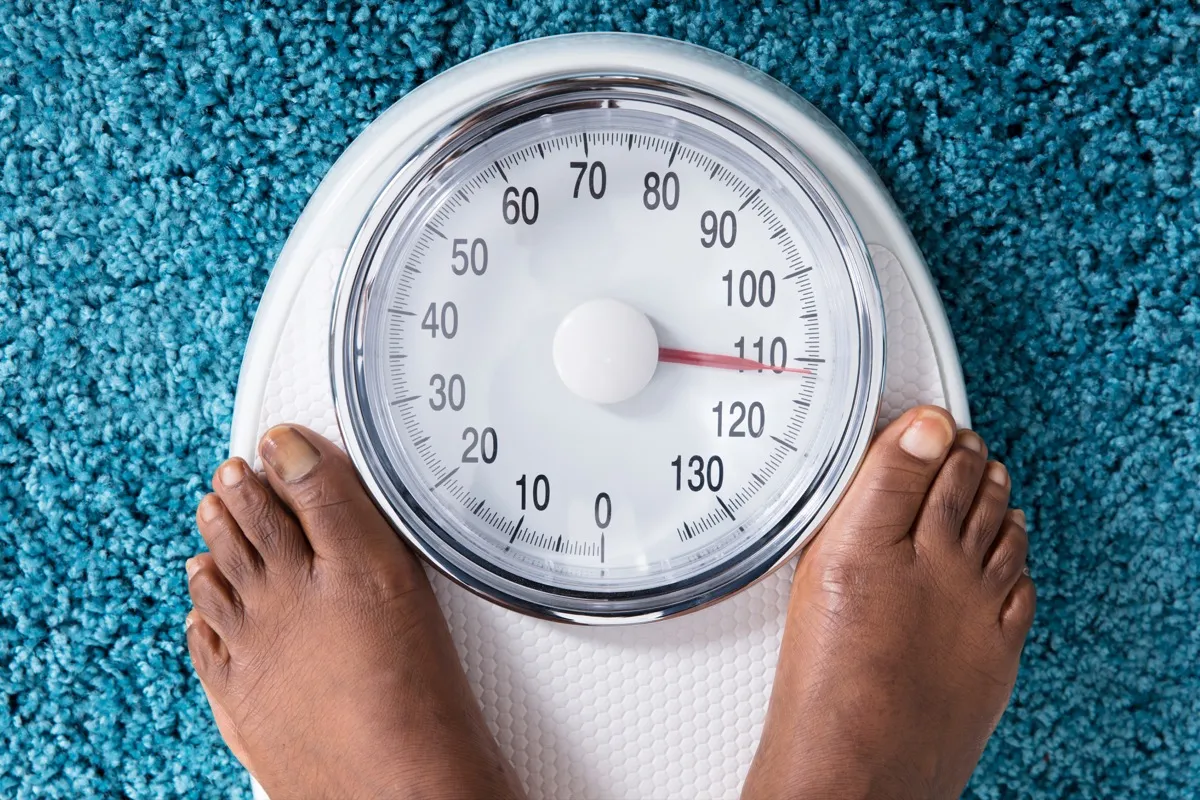
It’s not uncommon to experience weight gain in your 50s. For women, this weight gain could be a partial result of the hormonal changes associated with menopause, which typically happens by age 55. For men, it could be due to reduced testosterone levels, which tends to occur in middle age. Since diet and a slowed metabolism can also play a role in bringing on those extra pounds, your doctor can help you figure out the healthiest way to keep the weight off.
26
Do I need to check my heart health?

One of the main reasons why people have the highest risk of heart disease in their 50s and 60s is due to putting on excess weight, according to the American Heart Association. An unhealthy diet, lack of exercise, and smoking can also play a role. No matter what your situation is, if you’re in your 50s, it’s a good idea to ask your doctor if you should get some lab tests done.
“There are specialty functional medicine laboratory tests that can show us if an individual is on the path to a cardiac event—such as stroke or heart attack—far before that fate,” Berghoff says. “When we have this knowledge ahead of time, it helps to take measures to ensure the heart becomes and remains healthy, and greatly reduces the chances of cardiovascular complications. This is especially important for those with high blood pressure, a previous heart complication, or family history of heart disease.”
27
Which screenings do I need?
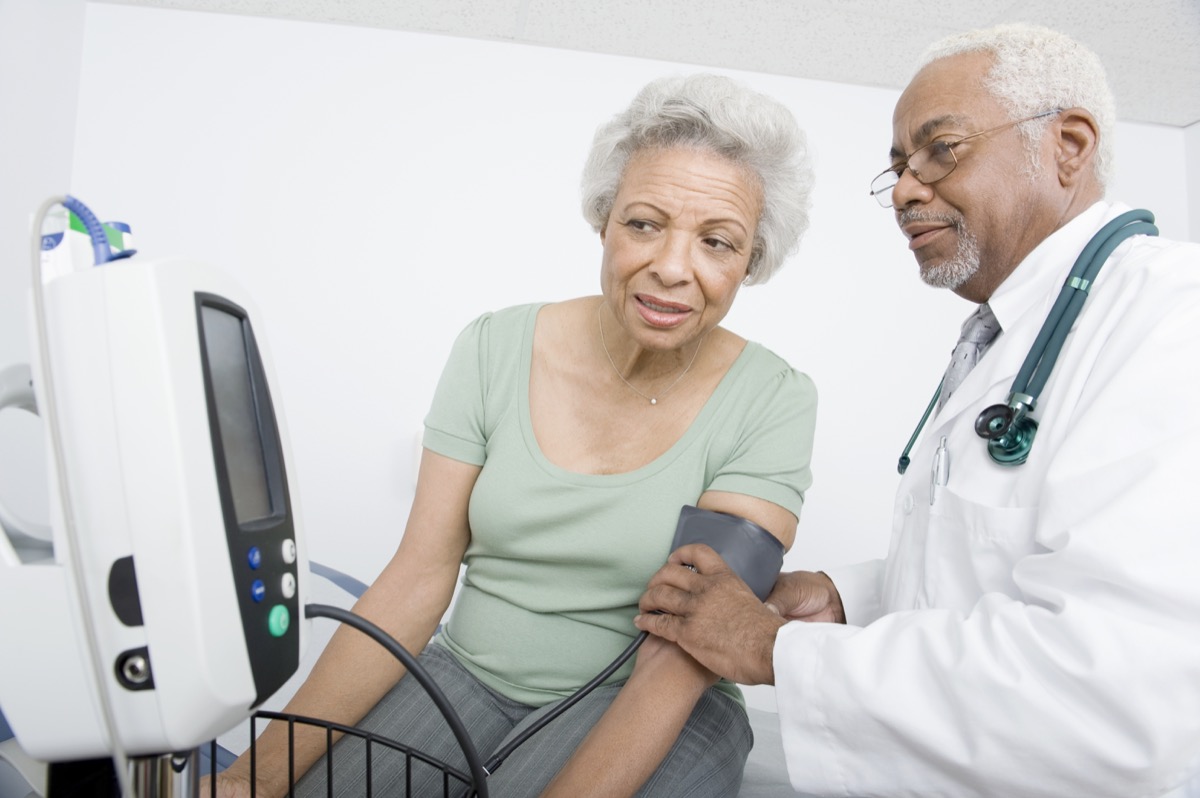
Once you reach your 50s, the amount of recommended screenings you should be getting done increases. In general, men 50 and older should be getting their blood pressure and cholesterol tested and have regular colorectal and diabetes screenings, according to Harvard Medical School. Women should have their blood pressure tested and get regular mammograms, Pap tests for cervical cancer, and be screened for colorectal cancer and diabetes. Since different people need different tests, ask your doctor about which ones are important for you, and how often you should get them done.
28
Do I need to be tested for STDs?

Sexually transmitted diseases (STDs) know no age. Because of that, it’s just as important to get tested in your older years as it was in your younger years—especially if you’re dating and not using protection. According to Harvard Medical School, the rates of some of the most common STDs are highest between 45 to 54 years old, so be sure you’re keeping yourself and your partner safe.
29
Why am I having such bad heartburn?

As your age increases, so does the likelihood that you experience heartburn after eating a meal. While the Cleveland Clinic says there’s no set age when heartburn becomes a big problem, the pain occurs from your muscles weakening over time—particularly the lower esophageal sphincter, which controls the opening between your esophagus and stomach. Weight gain and different medications could also be causing heartburn. Mention it to your doctor and he or she can help determine the issue so that you can fight off heartburn for good.
30
How are my nutrient levels?

It never hurts to get some blood work done to make sure your nutrient levels are all at optimal levels, especially as you get older. “Even minor nutritional deficiencies can lead to major health complications, like fatigue, weight gain, hair loss, and pain. Knowing your nutrient levels is helpful so you can increase foods high in certain nutrients or take a supplementation in order to boost your levels and allow your symptoms to go away,” Berghoff says. “Even if you don’t currently have any symptoms, if you have nutrient deficiencies, it can be causing damage within your body. If not addressed, those deficiencies could cause complications down the road.”
31
Can I get my moles checked?
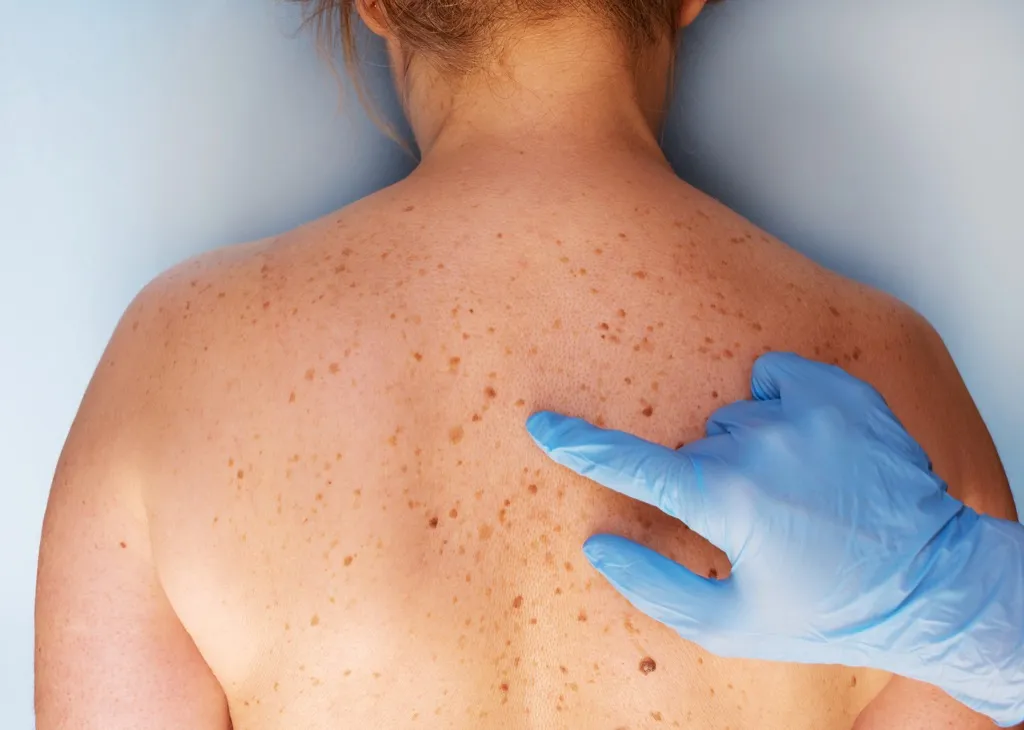
It’s a scary fact, but one in five Americans will develop skin cancer by age 70, according to the Skin Cancer Foundation. That’s why getting checked on a regular basis is important at any age. Whether you’ve noticed any weird moles or not, ask your doctor about getting a full-body skin exam. While it’s something commonly done during dermatology appointments, your primary care doctor can make it part of your regular routine as well to ensure any abnormal spots are checked out—especially those in areas you might not be able to do a close examination of yourself, like on your back.
32
Should I be worried about dementia?

When you’re in your 50s, it’s possible to start experiencing symptoms of dementia, a disorder that causes memory loss and can interfere with your daily life. According to the University of California, Irvine Medical Center, especially if you have a family history of dementia, it’s a good idea to talk about it with your doctor so you’re aware of any symptoms or changes to look out for.
33
How can I protect my vision?
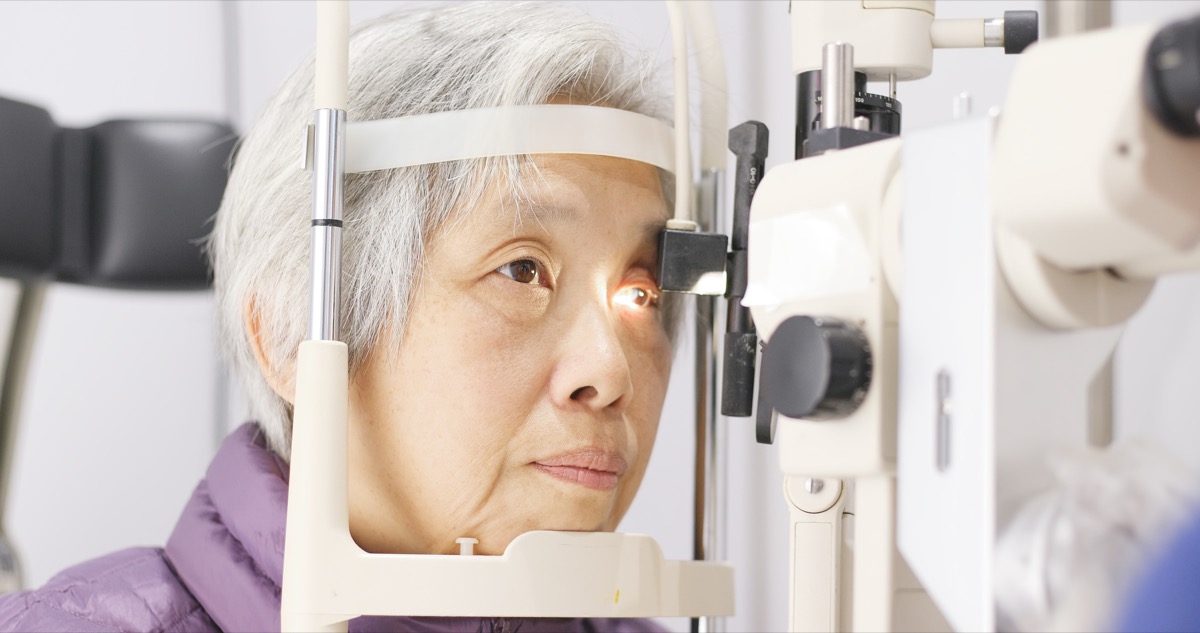
Over time, you might experience subtle changes in your eyes, causing you to up your glasses or contacts prescription to see things further away. In your 50s, it’s also common to have trouble focusing on things that are close up. According to the American Optometric Association, the problems typically begin between 41 and 60 years old, so pay attention to anything that comes up with your vision. Whether it’s blurriness, distorted images, or floaters and flashes, speaking with your doctor can help make sure your eyes remain as healthy as possible.
34
What should I be eating?

Your 50s is the time to take your health into your own hands, and one way you can do so is by cleaning up your diet. Your doctor can help you determine what you should be eating to feel your best, as well as prevent diet-related health issues, like diabetes, heart disease, some types of cancer, and poor bone health, according to the Office of Disease Prevention and Health Promotion.
35
What’s up with my back pain?
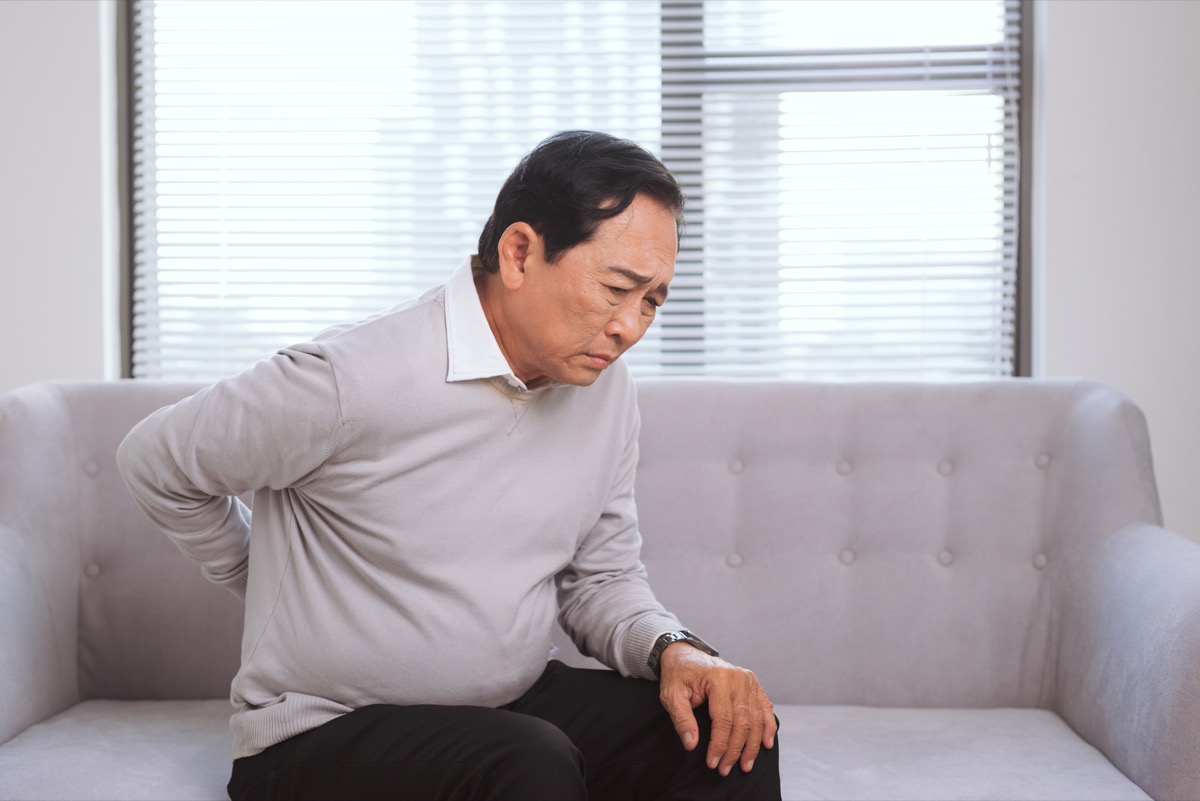
If you’ve been experiencing back pain, it might not just be due to too much yard work. According to the National Institute of Neurological Disorders and Stroke, back pain could be a signal that something else is wrong, whether that’s an infection, inflammatory disease, tumor, or even kidney stones. Instead of fighting off the pain, let your doctor know what’s going on.
36
Why are my energy levels so low?
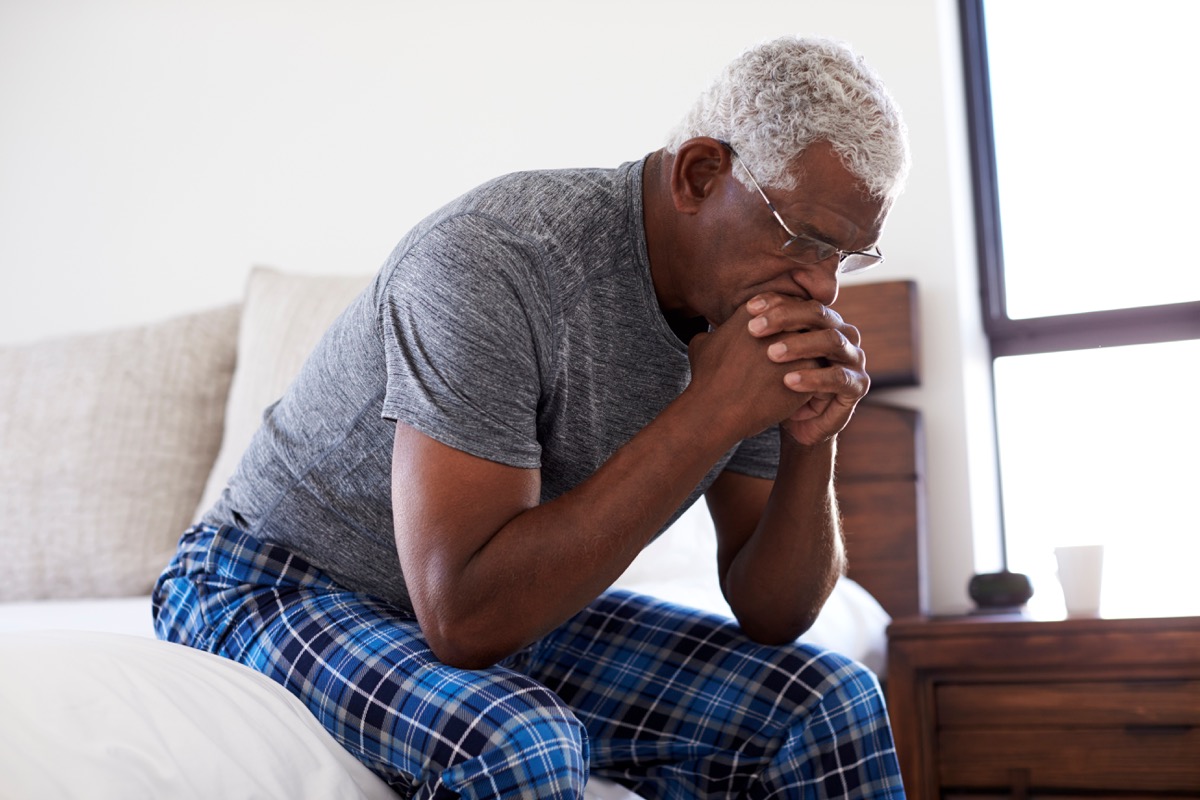
If you feel exhausted 24/7, bring the issue up to your doctor. According to the National Institute on Aging, it might not be due to your busy schedule—it could be because of certain illnesses, medications, anxiety, depression, and stress, as well as your dietary habits. Once you talk to your doctor and get to the bottom of the problem, you can work on getting your energy levels back to normal again.
37
How can I manage my slow metabolism?
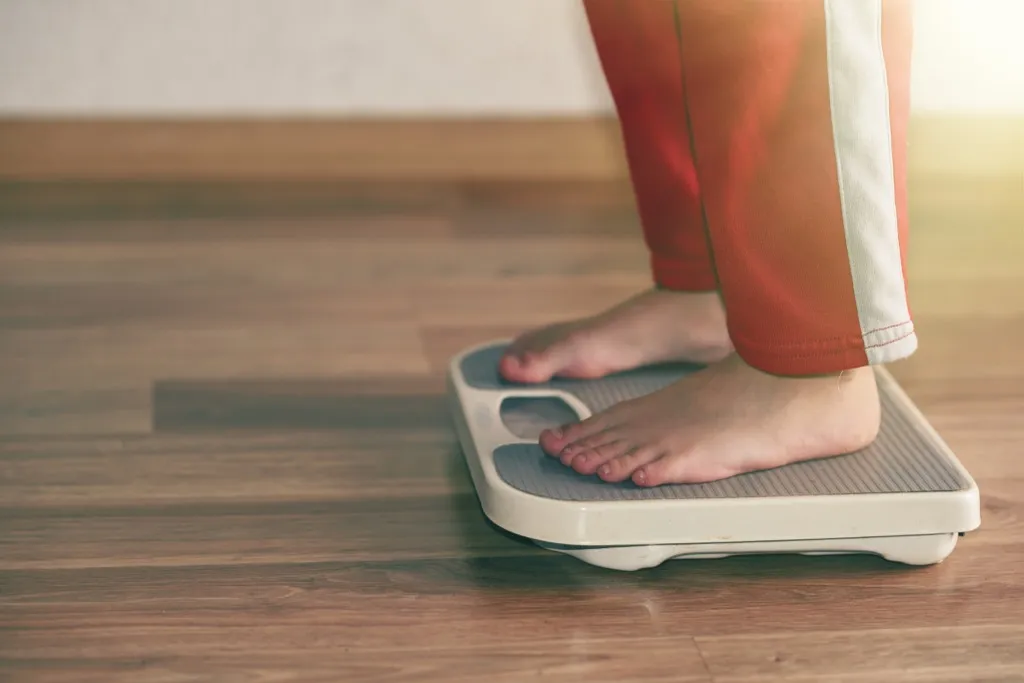
One of the worst parts about getting older is how it affects your metabolism. As you age, your metabolism declines—so much so that experts say by the time you’re 50, there’s a 30 percent drop, according to Karen Andry, a licensed and registered dietitian and bariatric coordinator at Piedmont Atlanta Hospital. Because of that, you might experience more weight gain, which could result in health problems. To feel your best, ask your doctor how you can combat a slowed-down metabolism, even if that’s adjusting your diet or adding more exercise to your routine.
38
How much alcohol is too much alcohol?

A glass of wine here and there isn’t going to affect your health. But as you get older, you do have to think more about how much alcohol you’re drinking. Harvard Medical School says with age, your body loses its ability to metabolize alcohol. Because of that, drinking the same amount you did in your younger years is going to hit you way harder in your 50s. Drinking while taking certain medications can also cause problems. Before you sip, speak with your doctor to make sure you know the proper amount to stick to.
39
Why is my libido down?

Losing your sex drive is part of the aging process. Whether it’s due to fluctuating hormones, underlying medical conditions, or simply stress or high anxiety, your doctor can help figure out what’s causing the problem and address it to get your libido back to normal.
40
Can I balance my hormones?

As women age, their sex hormone levels can drop up to 90 percent, resulting in mood issues, muscle loss, poor sleep, and more, says Mark Hyman, MD. Thankfully, there are ways to help balance those hormones so you can feel like yourself as you get older. “The first step involves removing the bad stuff,” Hyman writes. “We know that sugar, caffeine, alcohol, stress, and lack of exercise all contribute to worsened PMS and all hormonal imbalances, including menopause.” Talk to your doctor to see what other changes you can make to age gracefully and happily.
41
Why is my bladder out of control?
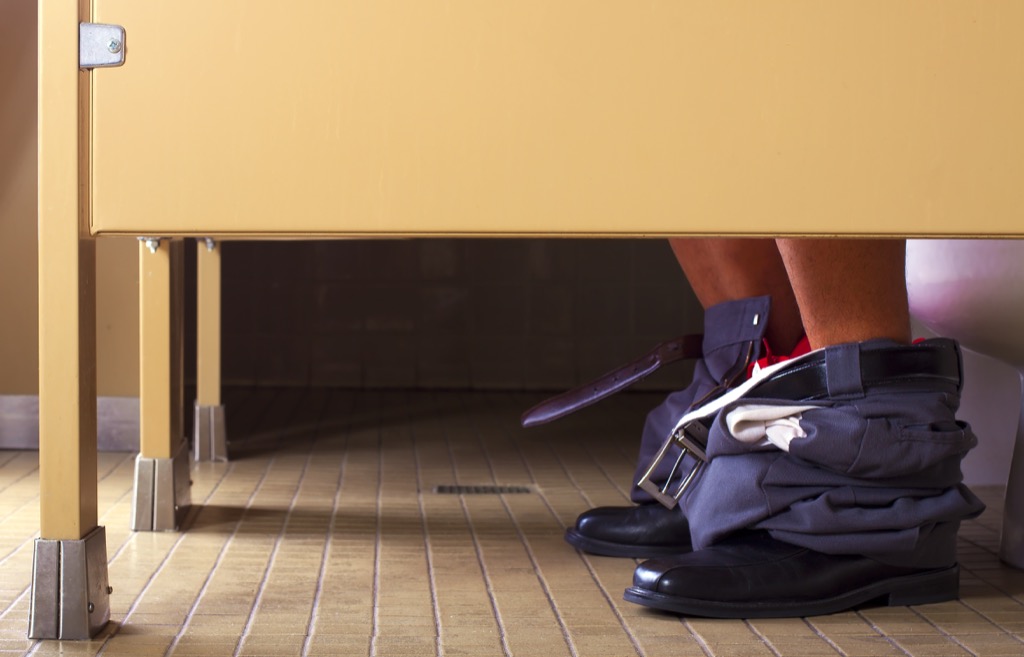
If you can hardly sit still without having to run off to the bathroom, it might be time to address the issue with your doctor. According to the Urology Care Foundation, an overactive bladder affects 33 million Americans and is a totally normal part of aging for both men and women. Luckily, your doctor can help you figure out lifestyle changes you can make—like limiting certain food and drinks and doing certain exercises—to help get your bladder under control.
42
What can I do about hair loss?
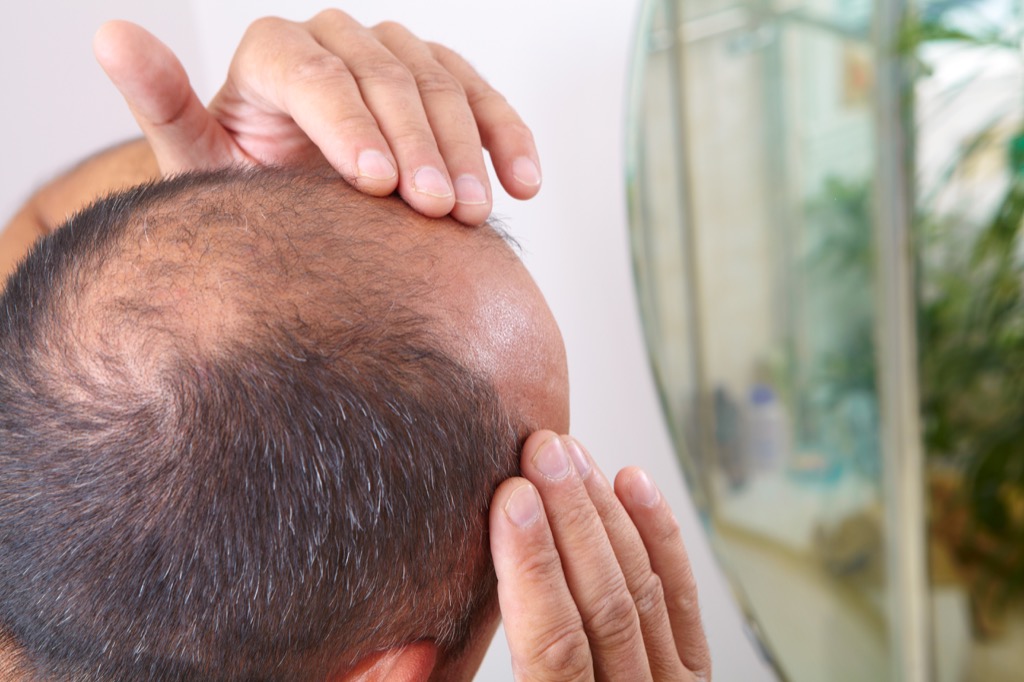
Neither men nor women are safe from hair loss. By 50 years old, 85 percent of men have already experienced at least a little thinning, according to AskMen.com. And women can experience hair loss too, often due to hormonal changes or genetics. Instead of accepting a thinning mane, address it with your doctor to figure out what can be done. These days, there are plenty of different treatment options available.
43
How can I manage my anxiety?

While anxiety doesn’t go hand-in-hand with aging, it’s not uncommon to experience it in your 50s. According to The Center for Treatment of Anxiety and Mood Disorders, there are many things you experience in your 50s that can spark it—like marital problems, your career and planning for retirement, or your kids moving away. Really, anything. Before anxiety gets the best of you, talk to your doctor about the best way to treat it.
44
Why is my memory so bad?

Unfortunately, memory loss is a normal part of the aging process. If you’re becoming more forgetful over time, it’s probably nothing; it’s common to misplace things and need to make more lists, says the Mayo Clinic. If your memory loss is starting to interfere with your day-to-day life, talk to your doctor to see if it’s normal memory loss or a disorder like dementia.
45
How can I keep my skin healthy and youthful?
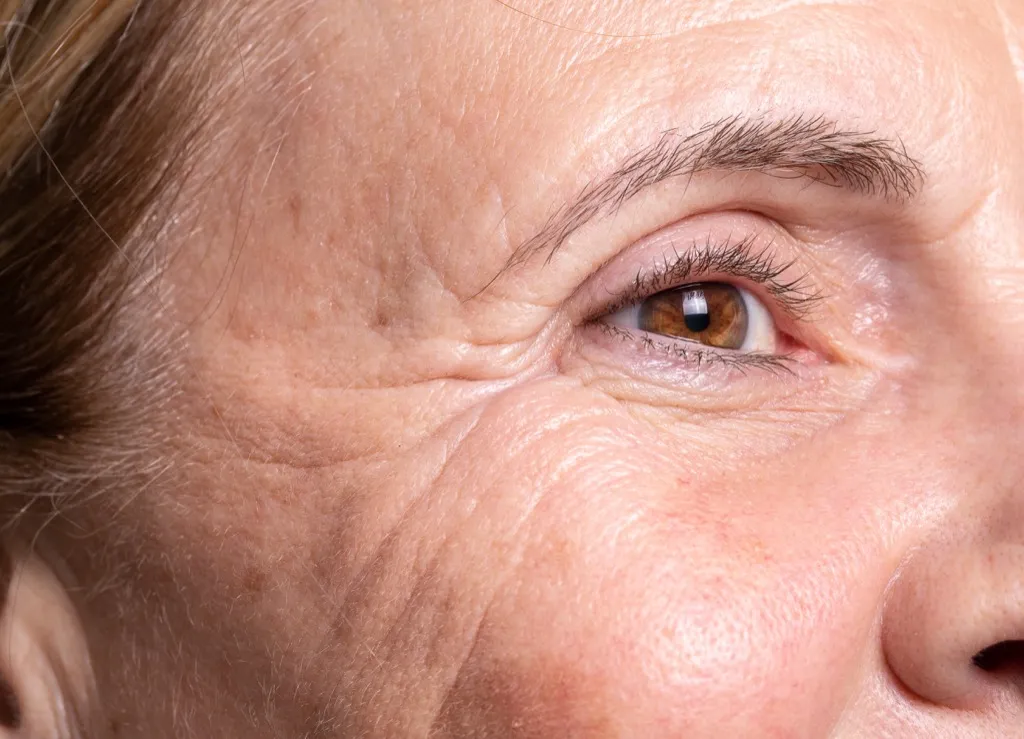
If you don’t have any wrinkles yet, lucky you. In your 50s, you might notice those lines popping up more than ever as your skin begins to produce less collagen. To age as gracefully as possible, talk to your doctor about how you can keep your skin healthy. From limiting time in the sun and slathering on sunscreen to eating a nutrient-rich diet, there are many ways you can keep that youthful glow for years to come.
46
Why do I have so many varicose veins?
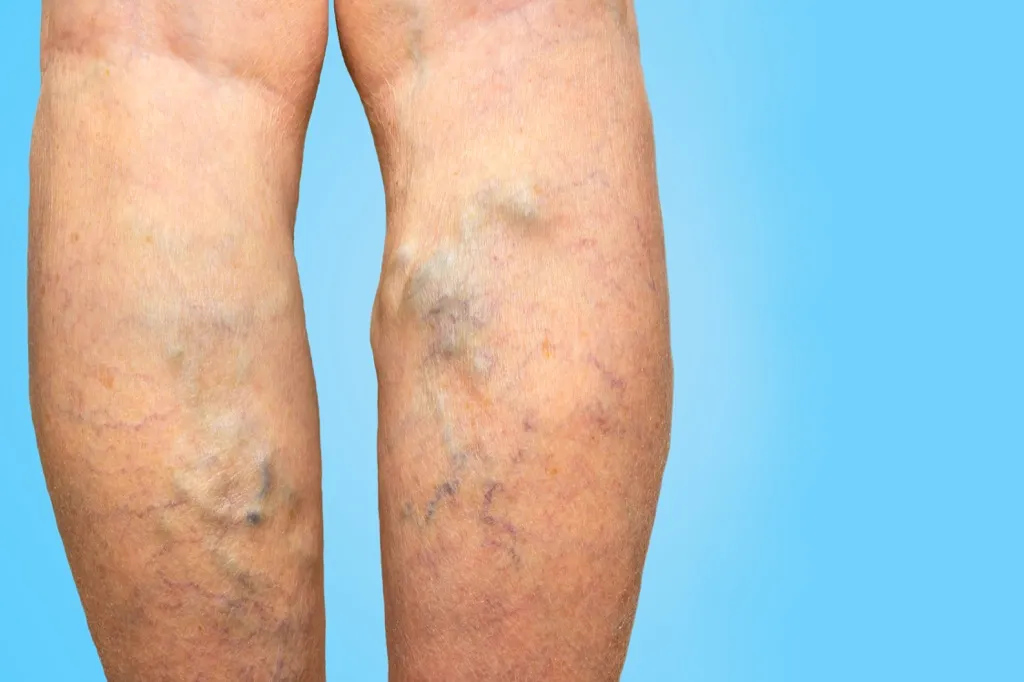
One second, your legs are nice and smooth. Then the next, you notice varicose veins popping up. So what gives? According to the Mayo Clinic, the risk of varicose veins increases as you age. Over time, the valves in your veins that regulate blood flow have some wear and tear, and that can cause blood to collect in your veins instead of heading back up to your heart. Discuss preventing varicose veins, as well as treating them, with your doctor—particularly because they can cause serious health problems, like blood clots and ulcers.
47
Can I get labs done on my gut microbiome?

Your gut health plays into many factors of your overall health, and that’s why it might be a good idea to dig deeper into it with some specialty laboratory tests. “The gut microbiome is critical in all aspects of your health. Some even state that all health starts in the gut, and more and more research is supporting this,” Berghoff says.
“Neurotransmitters and hormones, including the thyroid hormone, are impacted greatly by the health status of the gut, so if there are imbalances present—such as inflammation, bacterial overgrowth, or a parasite—it can lead to major complications such as anxiety, fatigue, insomnia, and thyroid disease.”
48
Should I be taking probiotics?

Since your gut is responsible for so many other aspects of your health, you have to make sure you keep your microbiome in check. One simple way to do that is by making sure you get your probiotics in. According to the Mayo Clinic, you can greatly benefit your health, mood, and behavior by taking probiotic supplements or eating fermented foods like sauerkraut, kombucha, and kimchi. They contain strains of bacteria that up the amount of healthy microbes in your gut and improve your wellbeing.
49
What can I do to keep my brain sharp?

With age can come a change in brain function, whether that’s having trouble recalling names, problems with multitasking, or having a harder time paying attention, says the National Institute on Aging. Discuss ways you can keep your brain sharp as you age with your doctor. Since parts of your brain can shrink over time, make sure you’re keeping your brain challenged to improve overall function of your mind and your body. That could be anything from reading more often, doing crosswords, or starting up a new hobby you love.
50
How can I better combat stress?
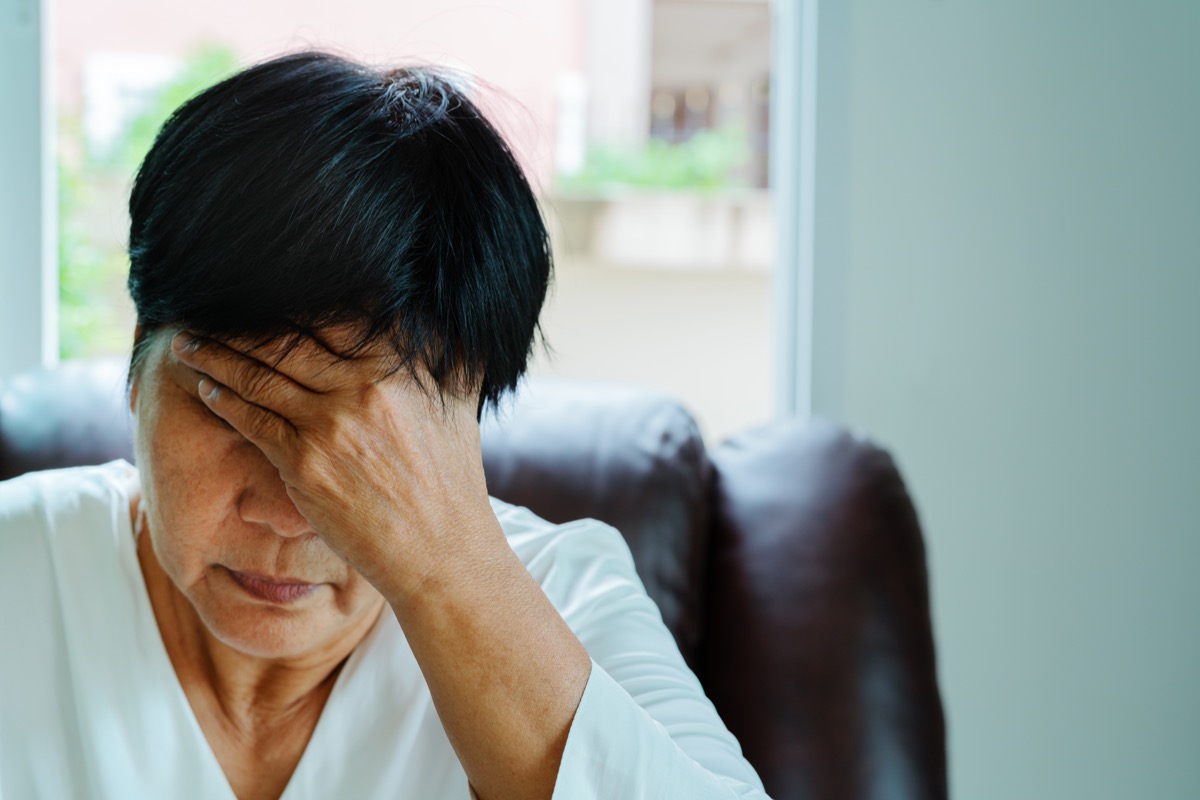
It’s no fun to deal with stress on a regular basis. While it can cause problems at any age, chronic stress can really start negatively impacting your health in your 50s, increasing your risk of heart attack, stroke, and other medical problems. If you’re feeling overwhelmed, ask your doctor for suggestions on how to control your stress levels. Maybe it’s exercising regularly, meditating, or stopping habits like smoking or drinking too much coffee. Whatever the case, the American Heart Association says there are many changes you can make to better your health overall. And for more shifts to explore at this stage of your life, check out the 50 Life Changes to Make After 50.
To discover more amazing secrets about living your best life, click here to follow us on Instagram!